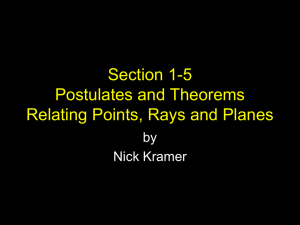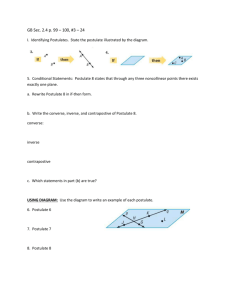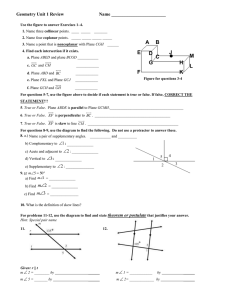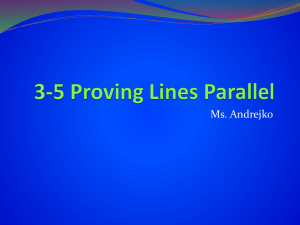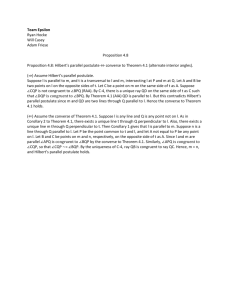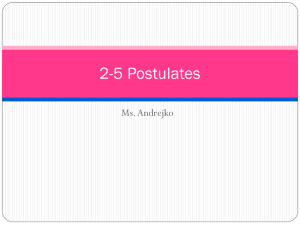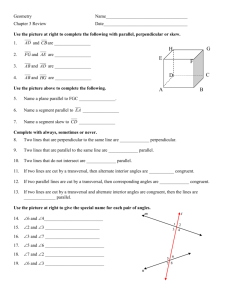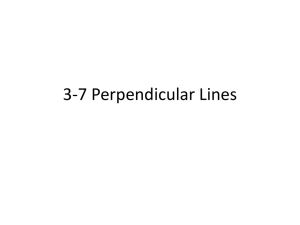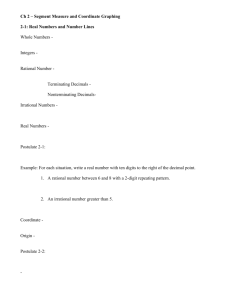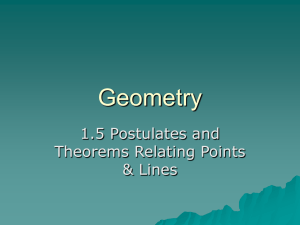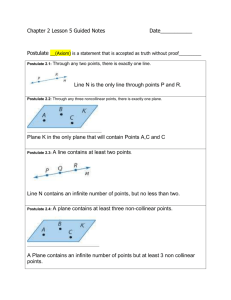Guided Notes 45 Geometry
advertisement
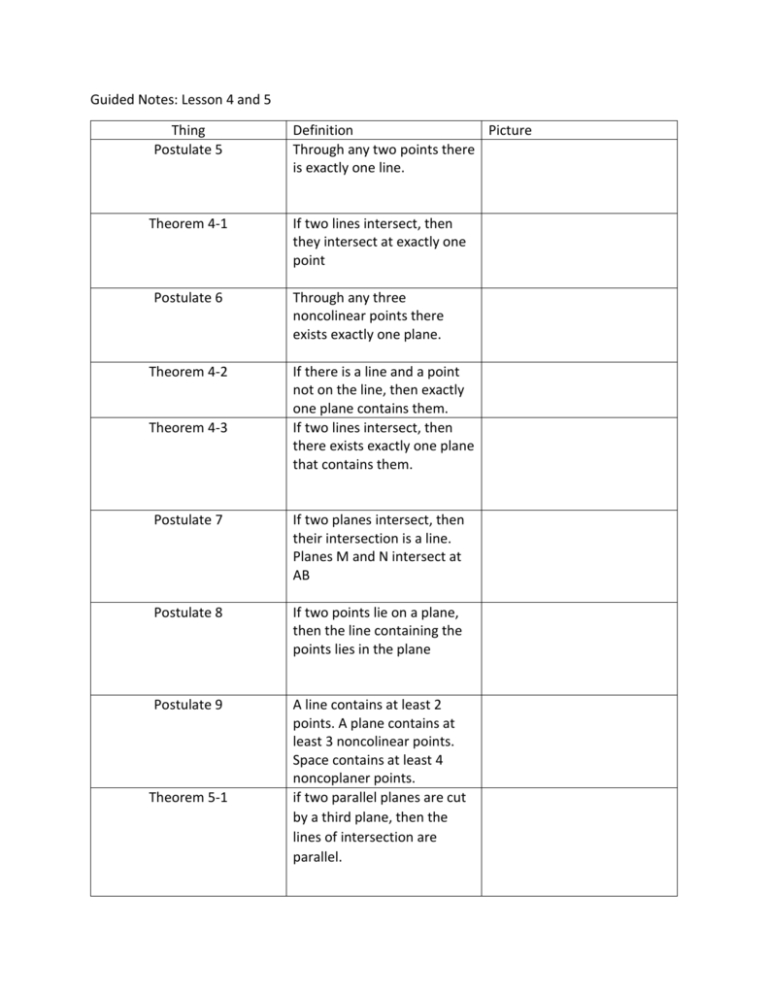
Guided Notes: Lesson 4 and 5 Thing Postulate 5 Theorem 4-1 Postulate 6 Theorem 4-2 Theorem 4-3 Definition Picture Through any two points there is exactly one line. If two lines intersect, then they intersect at exactly one point Through any three noncolinear points there exists exactly one plane. If there is a line and a point not on the line, then exactly one plane contains them. If two lines intersect, then there exists exactly one plane that contains them. Postulate 7 If two planes intersect, then their intersection is a line. Planes M and N intersect at AB Postulate 8 If two points lie on a plane, then the line containing the points lies in the plane Postulate 9 A line contains at least 2 points. A plane contains at least 3 noncolinear points. Space contains at least 4 noncoplaner points. if two parallel planes are cut by a third plane, then the lines of intersection are parallel. Theorem 5-1 Theorem 5-2 If two lines in a plane are perpendicular to the same line, then they are parallel to each other. Theorem 5-3 In a plane, if a line is perpendicular to one of two parallel lines, then it is perpendicular to the other one. If two lines are perpendicular, then they form congruent adjacent angles. If two lines form congruent adjacent angles, then they are perpendicular. Theorem 5-4 Theorem 5-5 Theorem 5-6 Postulate 10 (Parallel Postulate) Theorem 5-7 (Transitive property of parallel lines) Other Notes: All right angles are congruent. Through a point not on a line, there exists exactly one line through the point that is parallel to the line. If two lines are parallel to the same line, then they are parallel to one other.
